• graphQL
Overview¶
GraphQL is a query language for APIs and a runtime for fulfilling those queries with existing data. Stargate.io provides a graphQL interface which allows you to easily modify and query your table data using GraphQL types, mutations, and queries.
Stargate GraphQL API supports two modes of interaction:
-
schema-first which allows you to create idiomatic GraphQL types, mutations, and queries in a manner familiar to GraphQL developers. The schema is deployed and can be updated by deploying a new schema without recreating the tables and columns directly.
-
cql-first which translates CQL tables into GraphQL types, mutations, and queries. The GraphQL schema is automatically generated from the keyspace, tables, and columns defined, but no customization is allowed.
Prerequisites¶
- You should have an Astra account
- You should Create an Astra Database
- You should Have an Astra Token
Exploring the GraphQL API with the GraphQL playground¶
A simple way to get started with GraphQL is to use the built-in GraphQL playground. The playground allows you to create new schema and interact with the GraphQL APIs. The server paths are structured to provide access to creating and querying your schemas, as well as querying and modifying your data.
✅ Open the GraphQL Playground
Open the playground from the Connect tab in the APIs section.

Remember to add your token to the HTTP HEADERS at the bottom of the screen.
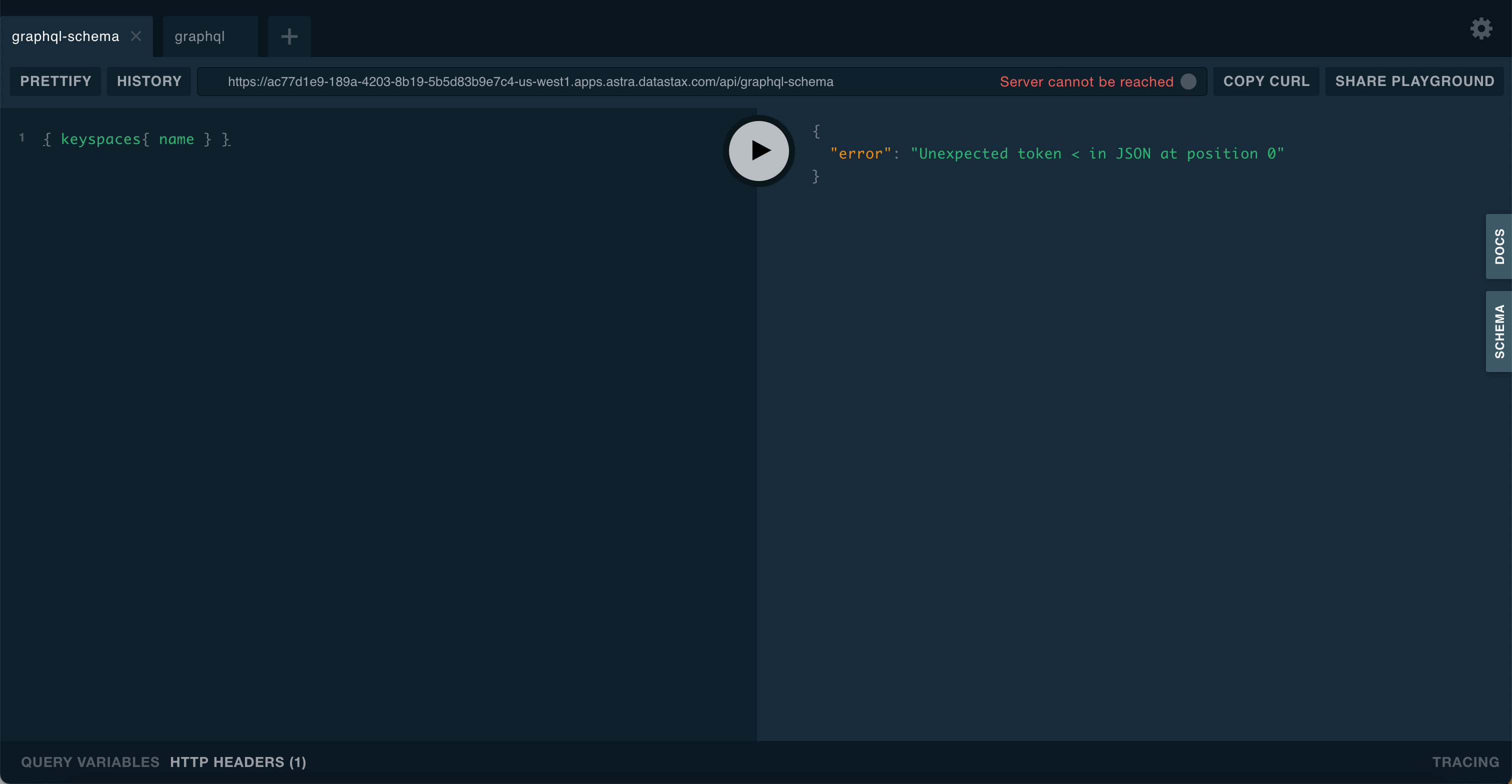
✅ Creating a keyspace :
Before you can start using the GraphQL API, you must first create a keyspace and at least one table in your database. If you are connecting to a database with an existing schema, you can skip this step.
For this example, we will use a keyspace called library:
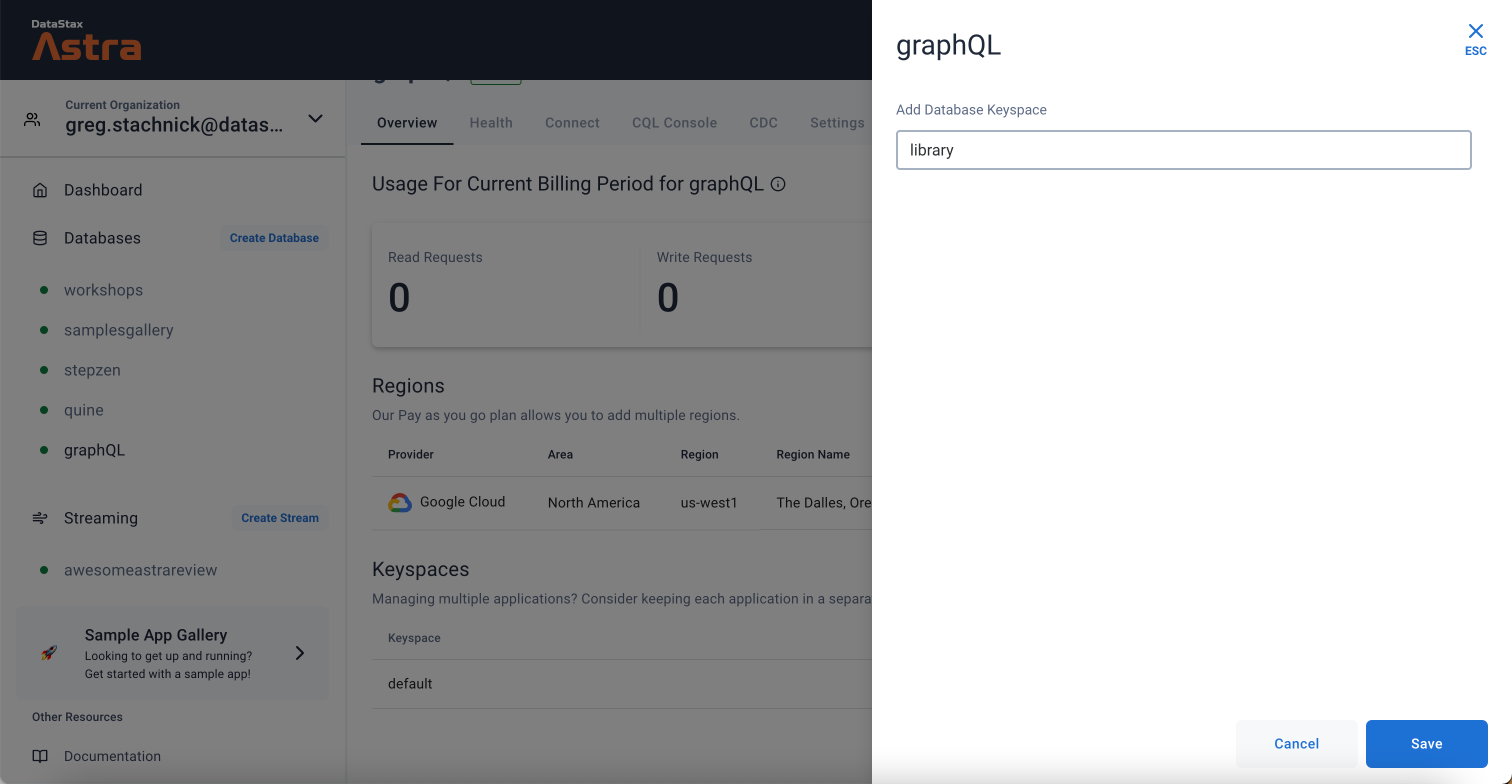
✅ Creating a Table :
There are three Stargate GraphQL API endpoints, one for creating schema in cql-first, one for deploying a schema in the schema-first, and the third for querying or mutating a keyspace.
Schema
https://$ASTRA_CLUSTER_ID-$ASTRA_REGION.apps.astra.datastax.com:8080/api/graphql-schema
Admin
https://$ASTRA_CLUSTER_ID-$ASTRA_REGION.apps.astra.datastax.com:8080/api/graphql-admin
Querying
https://$ASTRA_CLUSTER_ID-$ASTRA_REGION.apps.astra.datastax.com:8080/api/graphql/{keyspace}
- In the
graphql-schemaendpoint, use this query to create a new table
mutation {
books: createTable(
keyspaceName:"library",
tableName:"books",
partitionKeys: [ # The keys required to access your data
{ name: "title", type: {basic: TEXT} }
]
values: [ # The values associated with the keys
{ name: "author", type: {basic: TEXT} }
]
)
authors: createTable(
keyspaceName:"library",
tableName:"authors",
partitionKeys: [
{ name: "name", type: {basic: TEXT} }
]
clusteringKeys: [ # Secondary key used to access values within the partition
{ name: "title", type: {basic: TEXT}, order: "ASC" }
]
)
}
You should see the following confirmation once the command executes.
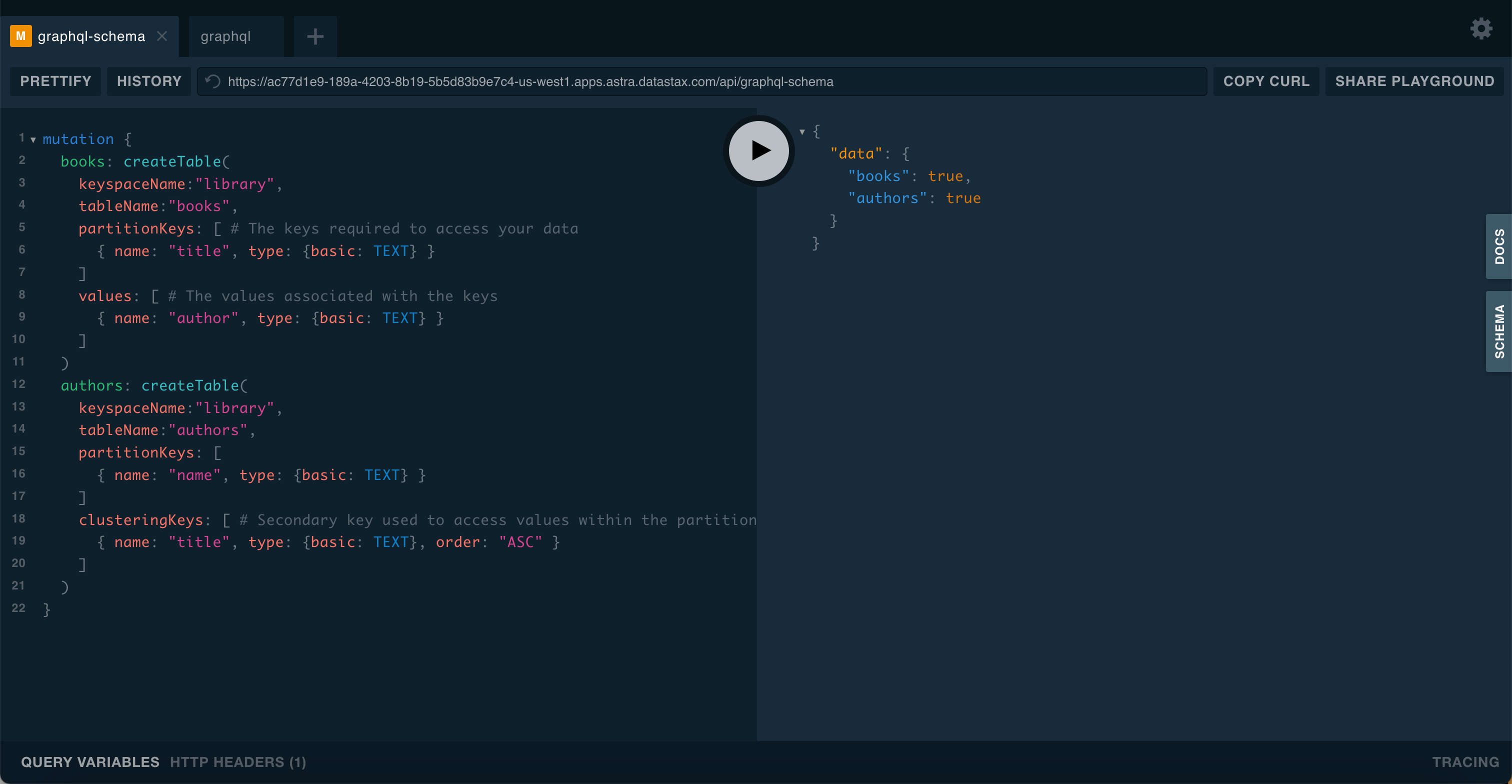
✅ Inserting Data :
Any of the created APIs can be used to interact with the GraphQL data, to write or read data.
First, let’s navigate to your new keyspace library inside the playground. Switch to graphql tab and pick the url /graphql/library.
- Use this query
mutation insert2Books {
moby: insertbooks(value: {title:"Moby Dick", author:"Herman Melville"}) {
value {
title
}
}
catch22: insertbooks(value: {title:"Catch-22", author:"Joseph Heller"}) {
value {
title
}
}
}
- Don't forget to update the header again with your token details
- You should see that two books have been added to the table.
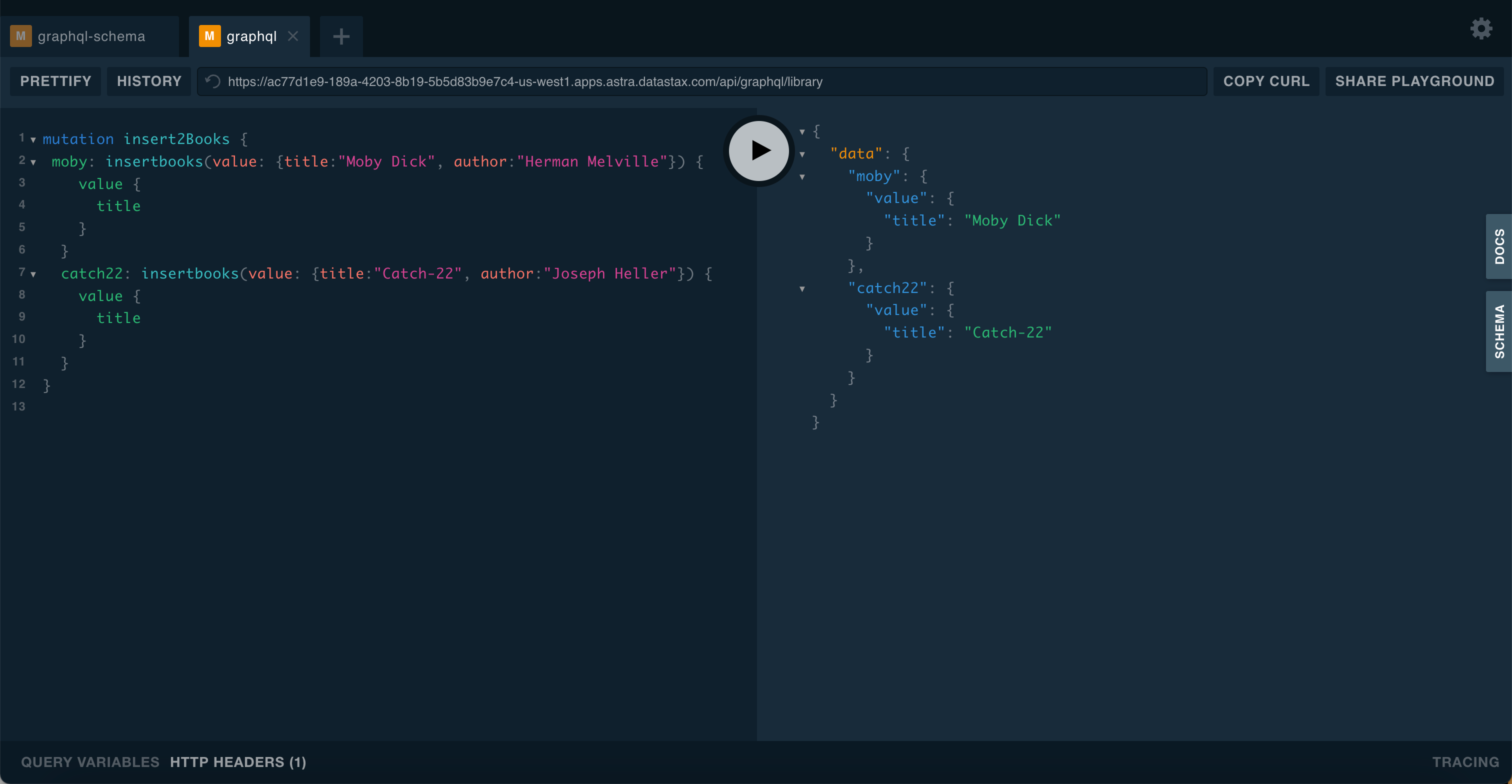
✅ Querying Data :
To query the data, switch to the graphql/library endpoint and execute the following
The query results will look like the following
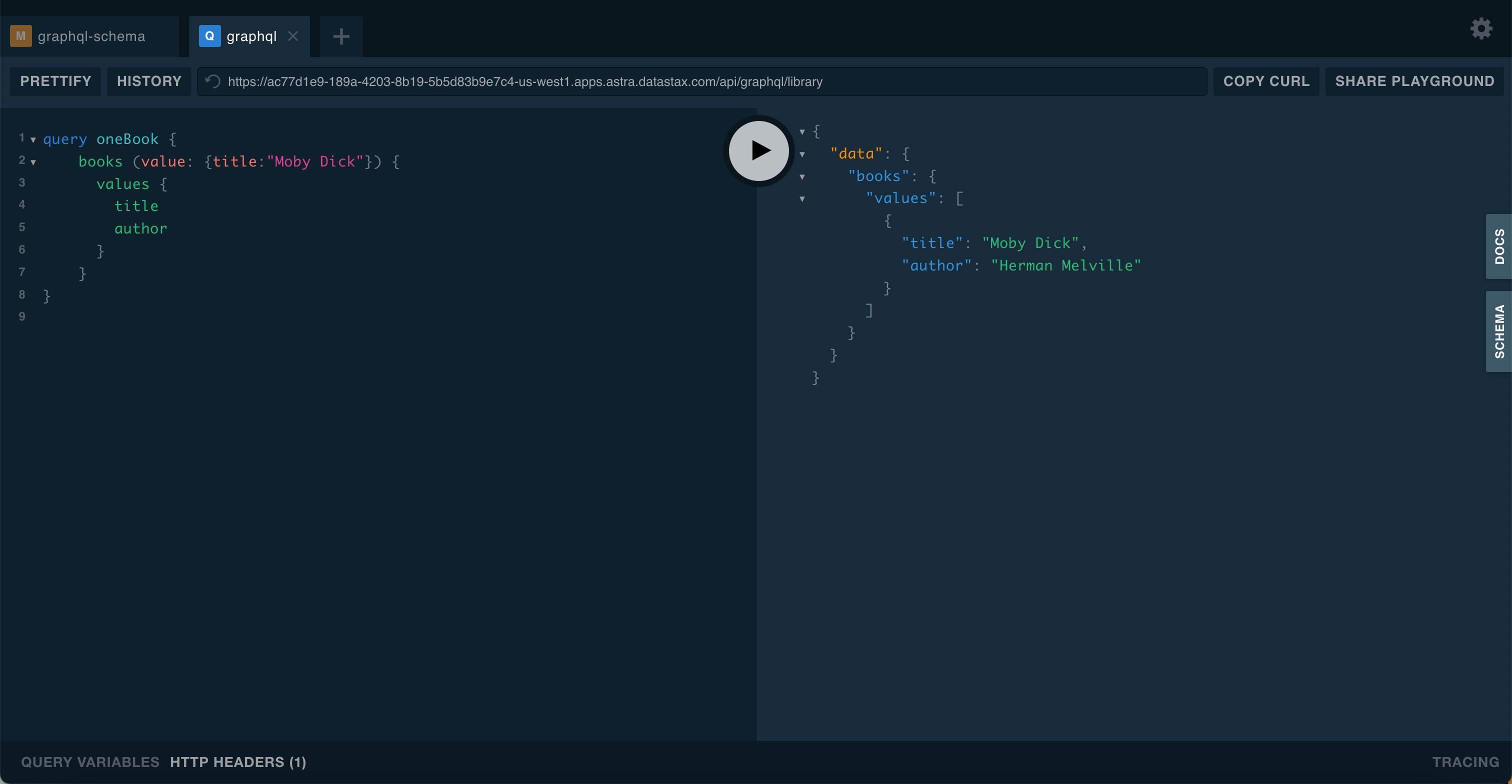
Using Postman with GraphQL¶
Postman is a widely-used collaboration platform for API development and testing. Using this third-party tool, you can easily test APIs with environments generated for your test platforms and imported testing collections of API queries.
A Postman collection is available for Astra using the GraphQL API.
Extra Resources¶
- Developing with GraphQL
- Introduction to GraphQL Workshop